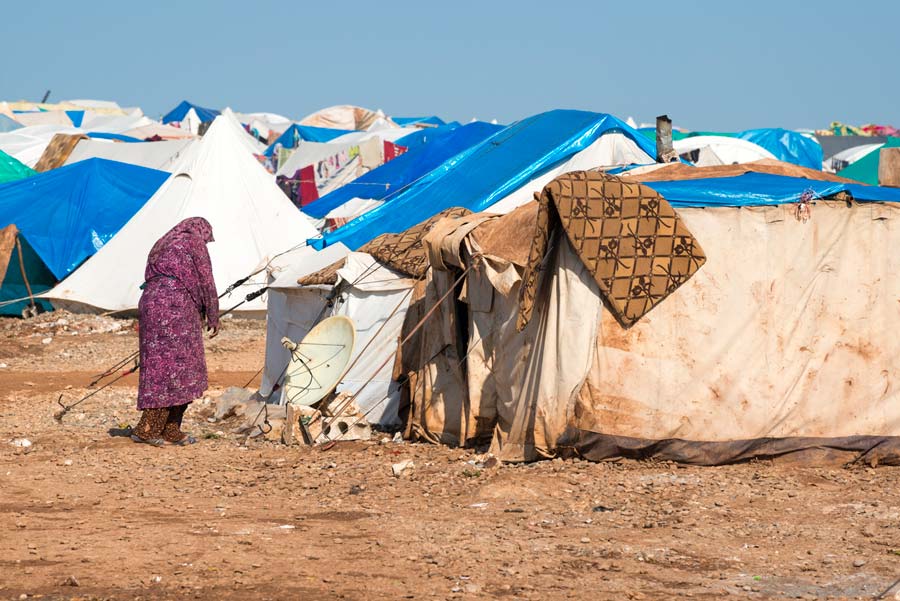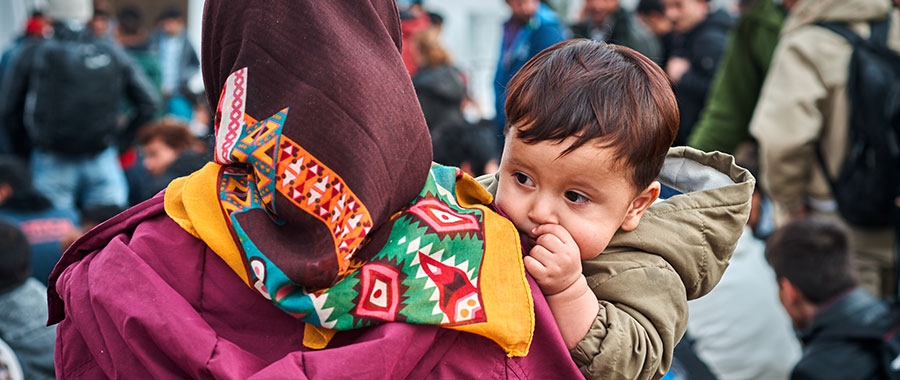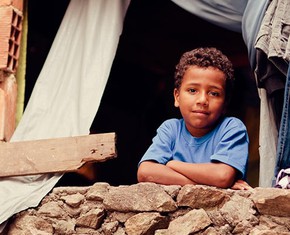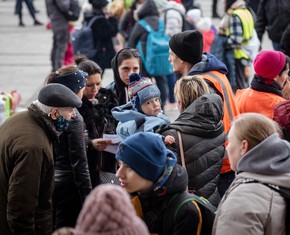The views expressed in our content reflect individual perspectives and do not represent the authoritative views of the Baha'i Faith.
My country saved my family’s life by welcoming refugees. I wish every country did the same.
As Canada celebrated its 150th anniversary this year, we were reminded of the deepest core values for which Canadians are admired across the globe—their openness, generosity, big heartedness and broad-mindedness. Canada represents millions of incredible people and communities that have strengthened and contributed to its cultural, societal and economic growth. It represents a diversity of individuals, from every country around the globe, many of whom have survived dire conditions arriving in this country as refugees.
Canada’s humanitarian legacy is reflected in its history for welcoming refugees. It is amongst the largest resettlement countries in the world, accepting 20,000 to 30,000 refugees annually. Canada’s commitment to refugee resettlement demonstrates a global sense of shared responsibility in providing protection to people who are displaced by conflict or fleeing persecution.
But let me tell you a secret, or at least a relatively unknown fact: by accepting immigrants and refugees, Canada has not only strengthened its economy and diversified its cultural identity, but has fostered the value of policy coherence between its political and humanitarian dimensions across international and Canadian shores. Refugees, it turns out, greatly benefit the countries that welcome them.
Last week, I had the privilege of meeting a young Syrian refugee who courageously shared his heartfelt story of facing conflict, torture, trauma, and the death of his family and friends during war. He told me about his arduous journey to Lebanon, Egypt and Canada in hopes of making a new life for himself and contributing to the betterment of society. His story, and the entire issue of the global refugee crisis, holds a very dear and important part of my personal and professional life, because I’m the child of refugee parents myself.

I often reflect on the countless opportunities Canada has presented to my family, who immigrated to Canada 31 years ago as government-sponsored refugees due to the ongoing persecution of the Baha’is in Iran. I would literally not be here today, had Canada not bestowed its generosity and hospitality upon my parents, at a time when my mother faced a near-death experience when she contracted Typhoid fever, while carrying me through her pregnancy in Pakistan. As a result, I had the great bounty to be born and raised in a country that prospers in its diversity, tolerance and acceptance of all faiths, cultures and beliefs, and to have access to education, healthcare, and many other opportunities provided to Canadians across this great nation.
Unfortunately, there are numerous misconceptions and stereotypes concerning refugees perpetuated by mainstream media. As a result, too many people believe that refugees impose a burden on the economy, constitute a danger to society, and lack what it takes to valuably contribute to society. On the other hand, many also ask: “Why should we care? This isn’t my problem. This is happening in another part of the world.”
Well, yes, I’m here to tell you, it does concern us.
The bottom line: we are all human, endowed with the spiritual and moral capacities to do good in this world. We need to treat all human beings with respect and dignity—especially if we expect to be treated that way ourselves. National borders, ethnicities, skin color or economic class don’t separate us from other people—in fact, that diversity represents what it means to be human. We need to ensure that basic human rights are respected everywhere, and that the millions of refugees who have been forcibly displaced can live in safety and in dignity.
Baha’u’llah, the founder of the Baha’i Faith, wrote:
The well-being of mankind, its peace and security, are unattainable unless and until its unity is firmly established. – Gleanings from the Writings of Baha’u’llah, p. 286.
The Baha’i teachings further say:
Should anyone seek refuge with you, extend unto him your protection and betray him not. Thus doth the pen of the Most High counsel you, as bidden by Him who is the All-knowing, the All-informed. – Baha’u’llah, The Summons of the Lord of Hosts, p. 94.
How do you think we can solve the world’s mounting refugee crises? In the next essay in this series, we’ll look at some solutions.
















Comments
Sign in or create an account
Continue with Googleor